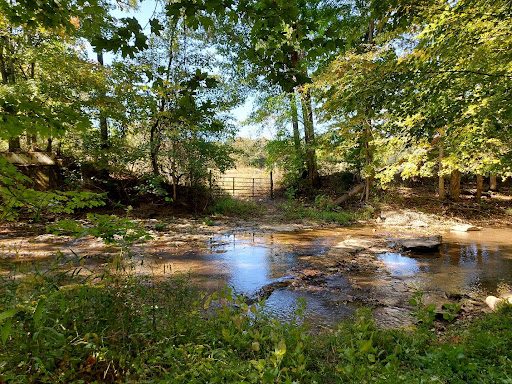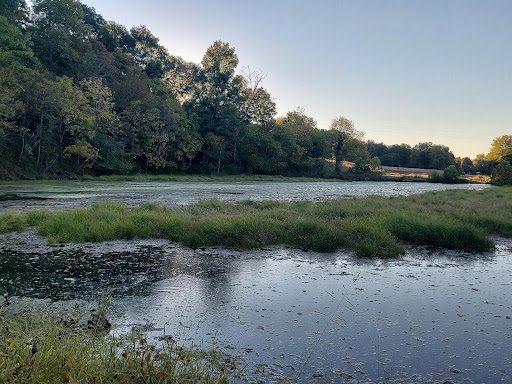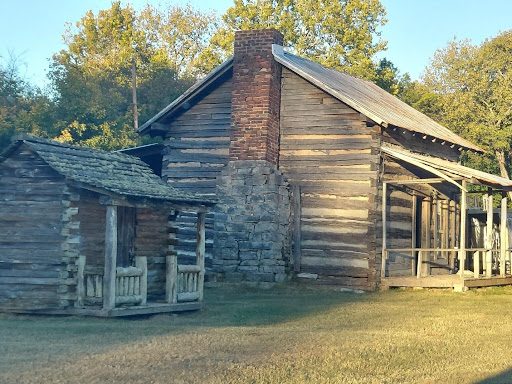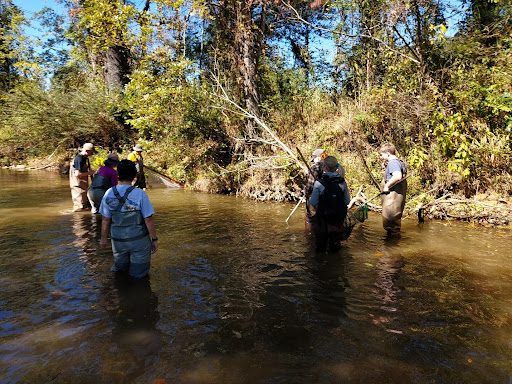Pictures don’t do it justice, and neither does a pipeline > Appalachian Voices
I recently spent a few weekends exploring around Big Bartons Creek in Charlotte, Tennessee with other biologists and nature lovers to see what kinds of plants and animals the area is home to. I was amazed at all the diversity we found, and truly understood how special this part of Tennessee is.
During a stream study conducted by the Center of Excellence for Field Biology at Austin Peay State University, we found many species of fish: smallmouth bass, chub, lollipops, minnows, madtoms and darters, to name a few. We also found four species of crayfish, including one that we believe is new to science! We are awaiting the results of a DNA analysis before it becomes official and we can give a name to the new species of crayfish.
Ichthyologists and students from the Austin State University Peay Center of Excellence for Field Biology survey a creek in Dickson County, Tennessee. Photo by Angela Mummaw
All of the abundant natural beauty and wildlife we saw could be at risk if gas giant Kinder Morgan has its way. The company wants to build a 32-mile pipeline to transport fractured gas through three counties in central Tennessee. The proposed project would trace a path through more than 130 wetlands and waterways. The bedrock along the route is karst limestone, which is highly erodible and contains many cracks and fissures. Disturbances from pipeline construction could cause streams to be diverted or even buried, making them inaccessible to the public, wildlife and livestock that currently rely on this water.

This beautiful creek would be crossed twice by the proposed pipeline. With its karst bedrock, drilling or blasting could cause the creek to be buried, making it inaccessible to anyone. Photo by Angela Mummaw
The proposed pipeline project could also pose threats to drinking water, recreation and aquatic life in the area. Immediate construction disruption, resulting sedimentation or a spill could affect access to clean water in an area where many rural residents depend on well or spring water and cannot switch to a alternate supply in case of contamination.
Pipeline construction also threatens several watersheds and aquatic ecosystems that are habitats, water resources and hunting grounds for hundreds of plant and animal species, including endangered freshwater mussels. which are very sensitive to sedimentation and poor water quality as they are filter feeders that lay motionless at the bottom of the water and randomly filter food particles or small organisms through their specialized feeding structures . Disturbances that cause turbidity, pollution, or reduced light greatly impair their ability to feed through filtration.

The proposed pipeline would threaten more than 130 wetlands and waterways, like this serene swamp in Dickson County, Tennessee, home to a huge diversity of plant and animal species. Photo by Angela Mummaw
Most of the proposed 32-mile pipeline would pass through Dickson County, Tennessee, where, according to the Tennessee Department of Environment and Conservation, there are 26 rare or endangered species of plants and animals. The department also lists seven endangered species for Houston County and 36 for Stewart County. Some of them include golden eagle, little blue heron, gray bat, Indiana bat, Price’s bean, master of hell, and alligator snapping turtle.
The pipeline threatens more than Tennessee’s natural beauty and abundant wildlife
There are many other reasons why we should protect this land from gas buildup. The proposed pipeline would be only about one mile from our region’s cultural sites like the Promise Land Heritage Area and the historic community of Cumberland Furnace – areas that are home to more than 20 historic sites, including churches, schools , cabins, a commissary and even a train depot. There are also several Century Farms that are directly on the pipeline route. Kinder Morgan’s plans would place many historic lots and homes in the impact zone or vent zone of the methane gas pipeline, leaving them vulnerable to leaks and deadly explosions.

One of many historic properties near the pipeline route in Dickson County, Tennessee. Photo by Angela Mummaw
Many residents and businesses along the pipeline route, such as Highland Rim Headstart Preschool and the Houston County Jail, would be at risk from leaks, explosions and pollution because they are located in the area. impact of the methane gas pipeline. The pipeline will pass through rural areas far removed from local fire departments, leaving many people more vulnerable in the event of an explosion.
The proposed pipeline will only be needed if the Tennessee Valley Authority decides to replace the coal-fired Cumberland City Fossil Plant with two methane-fired units – a gas build that would force the community of Cumberland City to put up with more pollutants from the coal. water and air, while only providing a fraction of long-term jobs that clean energy alternatives could provide. Additionally, the reliance on fracked gas could further increase the energy burden of low-income residents, not just in Cumberland City, but throughout the Tennessee Valley. TVA has already significantly increased its electricity bills this year — this trend would continue if gas accumulation were approvedleaving the community burdened with increased pollution, fewer jobs and higher electricity bills.
The pipeline project would only supply gas to the Cumberland City Fossil Plant, which TVA wants to replace with gas-fired units, even though the U.S. Environmental Protection Agency raised serious concerns on the VAT proposal. The installation of a methane gas pipeline and the construction of two gas units is a step in the wrong direction when we should be making considerable progress in tackling the climate crisis. Trading one fossil fuel for another doesn’t make sense, especially when methane is a greenhouse gas 80 times more potent than carbon dioxide.
There are other clean, renewable options to consider that are sustainable, safer, and more environmentally friendly. With clean energy replacements readily available for the City of Cumberland plant, a new pipeline is not needed.
If you would like to get involved in stopping this harmful pipeline proposal, contact Angie Mummaw at [email protected].


Comments are closed.